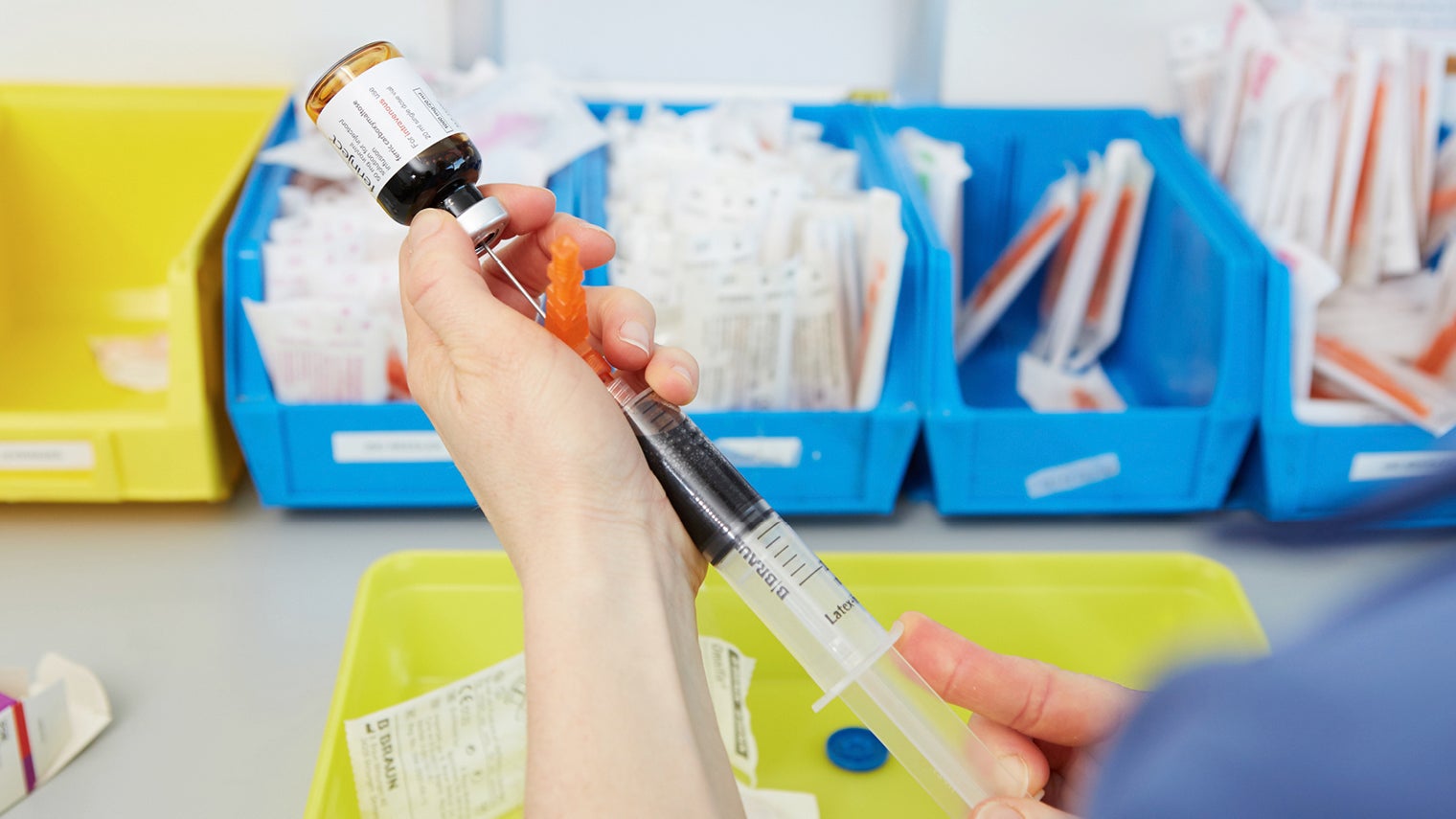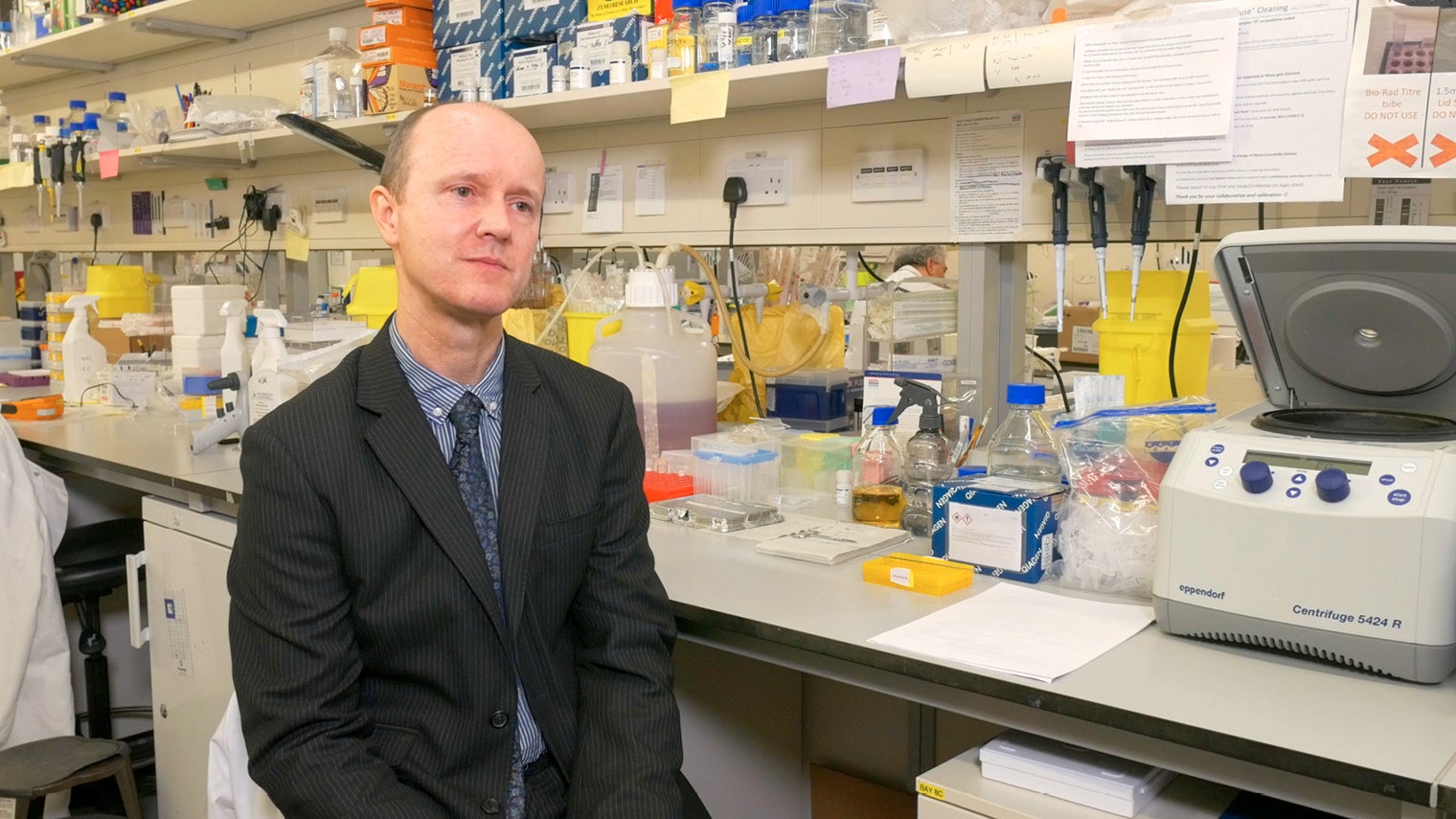Early results from the COBALT trial and other studies show that aggressive cancers can be tamed with CAR-T therapies which re-engineer the body’s immune system to seek out and neutralise abnormal and malignant cells.
The process, which takes T cells from a patient’s body and genetically modifies them to recognise specific cancer cells, has been proven to put some cases of lymphoma and leukaemia into retreat, and has now become available on the NHS.
The COBALT trial, conducted by University College London, was designed to look at the safety of using CAR-T therapy for people with an aggressive type of non-Hodgkin lymphoma called diffuse large B-cell lymphoma (DLBCL). The therapy targets a protein called CD19 found on the surface of some lymphoma cells with the aim of controlling the cancer before proceeding to a bone marrow transplant.
Parallel commercial advances reached a significant milestone last year with the European approval of a CAR-T therapy for both B-cell acute lymphoblastic leukemia and DLBCL. Manufacturing processes are still being refined and, while research continues into potential side effects and toxicity, CAR-T is seen as a dynamic therapy with the power to combat blood cancers and in the future may have the same effect on solid organ cancers.
Bloodwise, the blood cancer charity, is funding COBALT and research on several CAR-T initiatives. Dr Alasdair Rankin, its director of research, policy and support, says: “The big excitement is that these cellular therapies are coming to blood cancers first and they have the potential to make transformative change.
“We are just at the beginning of the wave and in ten years’ time we will be looking back on these innovative treatments, saying they are not very sophisticated because we will have progressed to mark three or four.”
The research underpins the potency of CAR-T in patients with advanced disease and, importantly, has allowed the UK to build experience with both manufacturing and delivery of these therapies, so treatments can be prepared and delivered safely and more cost effectively. The work, which started with a laborious processing line approach, has been shaped into an industry-leading automated template.
“Our early process was very labour intensive with lots of people gowned up and working one step at a time, which meant we could not make many products and that it was costly,” says Professor Karl Peggs, project leader and scientific director of the National Institute for Health Research Blood and Transplant Research Unit in Stem Cells and Immunotherapies.
“We realised that we needed to create an automated process that could be performed in closed systems without manufacturing in such a high-dependency and high-cost manufacturing environment.
“Our work has enabled us to reduce cost and complexity significantly, with multiple machines in a single room each capable of manufacturing a dose of cells. Our early trials taught us an awful lot and established important infrastructure. With that knowledge and processes in place, we can look at fresh ideas and new patient groups that might benefit.
One of the challenges is going to be about the NHS being ready and able to deliver this
“Thanks to our funders, we are now in a very good position to take other academic programmes forward, while industry partners are much keener to work with us to run big international trials and this means we get more access to new therapies for UK patients through commercial studies.
“The knock-on effect of our research is that manufacturing is cheaper and more efficient with far lower failure rates. Rather than treating one patient per month, we can now make multiple products and treat a lot more patients. The ability to be able to offer therapies patients cannot get elsewhere is hugely important.”
The COBALT trial was launched before CAR-T had gained scientific traction, so funding was an issue.
“It was not as easy to get funding then as it is now, but Bloodwise provided the bulk of what we needed,” says Professor Peggs, who is also honorary consultant in haematology and transplantation at University College London Hospitals. “Bloodwise has been hugely supportive of cell therapy research, not just CAR-T, over the past decade. This has been a high-risk area, but they have always been there when others haven’t. They have been prepared to support trials involving these extremely complex therapies associated with higher technical risk.
“Bloodwise was forward looking and supportive of cellular therapy and because of that we have been able to make CAR-T a reality.”
He believes that more licensed products will soon become available across a spectrum of blood cancers, while translating those discoveries to solid cancers is a longer-term goal.
NHS England has made CAR-T therapies available to eligible patients through the Cancer Drugs Fund, for the treatment of children and young adults with acute lymphoblastic leukaemia, and adults with DLBCL. Other Bloodwise-funded CAR-T research projects are examining cell structures for new targets in other blood cancers, as well as trying to discover new delivery techniques that will keep costs down.
It is still not clear if a patient will remain in remission because CAR-T hasn’t been around long enough to know. But Bloodwise is confident that every step will contribute to finessed treatments that can have a transformative impact and pave the way for more discovery across all blood cancers and into solid organ cancers.
“We are committed to saving more lives by investing in the most exciting research into CAR-T therapy,” says Dr Rankin. “We are at the dawn of an exciting era and it is evident that CAR-T has the potential to be an effective treatment for an awful lot of people.
“One of the challenges is going to be about the NHS being ready and able to deliver this. It is building capacity as fast as it can and has responded really positively.”
University College London Hospitals recently announced a partnership with the Exilarch’s Foundation to develop Europe’s first unit dedicated to delivering these therapies, the Sir Naim Dangoor Centre for Cellular Therapy.
“How we make these treatments more affordable and more effective, as well as moving them into other cancers, is going to be a challenge, but we are going to see lots and lots of improvements through research over the coming years,” Dr Rankin concludes.
For further information please visit bloodwise.org.uk



